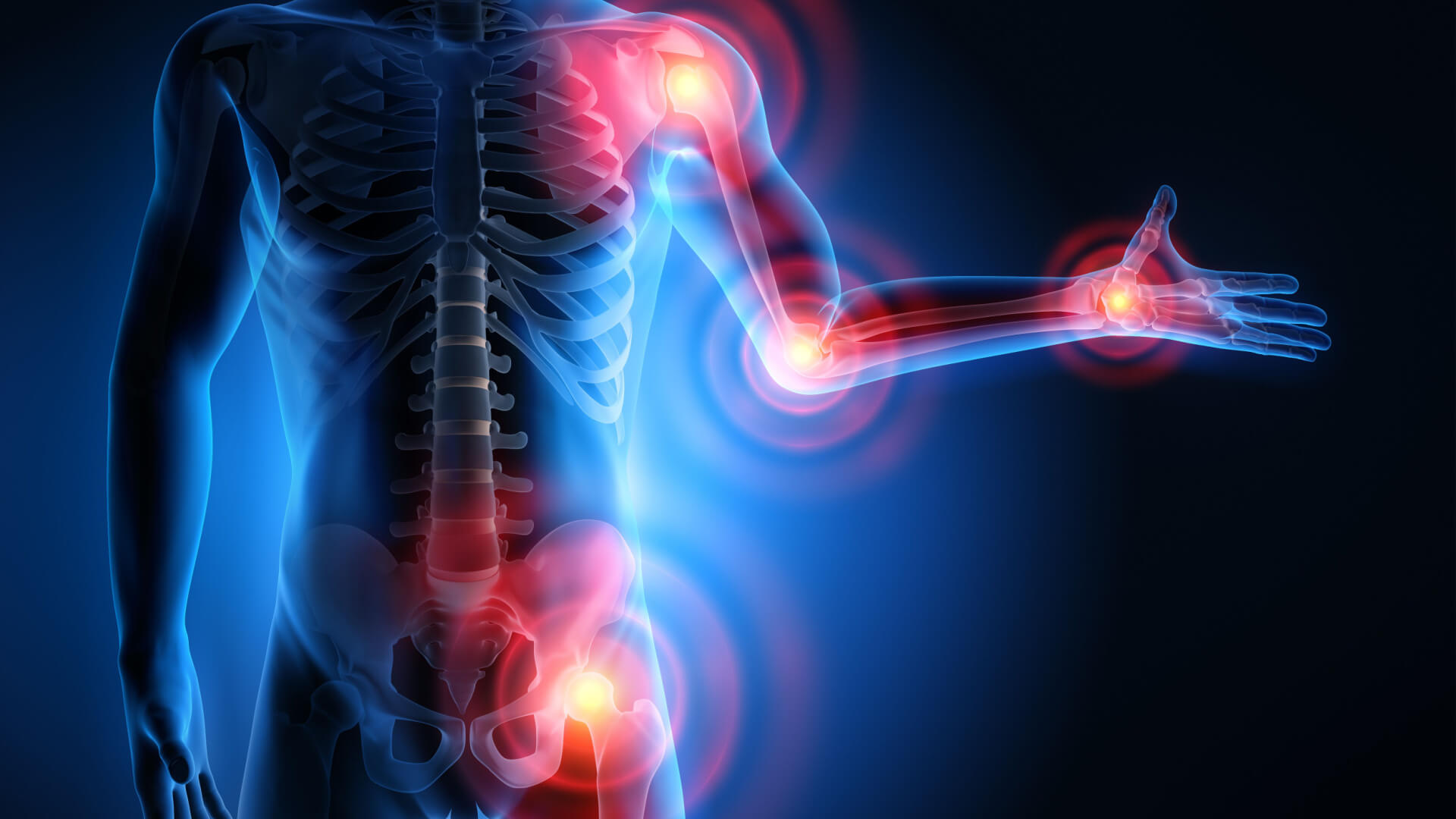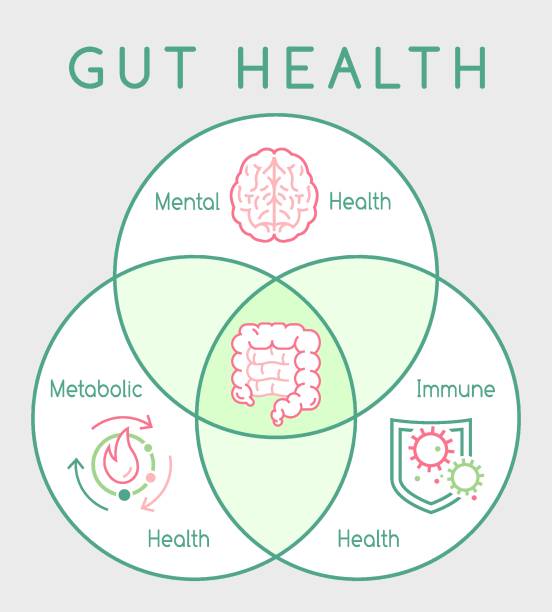
Inflammation is a natural and essential biological response that helps your body fight infections, heal injuries, and maintain overall health. However, when inflammation becomes chronic, it can quietly damage tissues, disrupt bodily functions, and contribute to serious diseases like heart disease, diabetes, autoimmune disorders, and even certain cancers.
This article dives deep into the science behind chronic inflammation, explores its causes and symptoms, and provides comprehensive strategies to reduce and manage inflammation for better long-term health.
What Is Inflammation? Acute vs. Chronic
Inflammation is your immune system’s response to harmful stimuli—whether that’s pathogens, physical injury, toxins, or irritants. When functioning properly, it acts like a biological alarm system that triggers healing.
Acute Inflammation
Acute inflammation is:
- Short-term (lasting minutes to days)
- Localized (affecting a specific area)
- Protective and essential for healing
Signs include redness, heat, swelling, pain, and loss of function. For example, when you cut your finger or catch a cold, acute inflammation helps fight infection and repairs tissue.
Chronic Inflammation
Chronic inflammation, on the other hand:
- Persists for months or years
- Can be systemic (affecting the entire body)
- Often occurs without obvious symptoms
- Can damage healthy tissues and organs
Rather than healing, chronic inflammation contributes to the development and progression of numerous diseases by creating a state of persistent immune activation.
How Chronic Inflammation Develops
Normally, your immune system switches off after dealing with a threat. But sometimes, this process fails:
- The body mistakenly attacks its own cells (autoimmune disease)
- Inflammatory triggers persist (chronic infections, irritants)
- Lifestyle and environmental factors create ongoing immune stress
This leads to an overproduction of pro-inflammatory molecules, causing continuous tissue damage and impaired function.
Common Diseases Linked to Chronic Inflammation
Research links chronic inflammation to a wide range of health issues, including:
- Cardiovascular disease: Inflammation contributes to artery plaque buildup and heart attacks.
- Type 2 diabetes: Inflammatory markers interfere with insulin function, worsening blood sugar control.
- Autoimmune diseases: Conditions like rheumatoid arthritis, lupus, and multiple sclerosis result from immune attacks on healthy tissues.
- Neurodegenerative diseases: Inflammation in the brain is implicated in Alzheimer’s and Parkinson’s disease.
- Cancer: Chronic inflammation can promote mutations and tumor growth.
- Digestive disorders: Crohn’s disease and ulcerative colitis involve inflammatory bowel inflammation.
Symptoms of Chronic Inflammation
Chronic inflammation is often called a “silent killer” because it can be asymptomatic or present with vague symptoms that overlap with other conditions.
Common symptoms include:
- Persistent fatigue and low energy
- Joint pain and stiffness, often worse in the morning
- Muscle aches or weakness
- Digestive problems: bloating, diarrhea, constipation, or abdominal pain
- Skin issues: eczema, psoriasis, acne, or rashes
- Frequent infections due to immune dysregulation
- Brain fog: difficulty concentrating, memory problems
- Mood changes: depression or anxiety
If you experience several of these symptoms regularly, chronic inflammation could be an underlying factor.
How Is Chronic Inflammation Diagnosed?
Doctors can measure inflammation using blood tests for biomarkers like:
- C-reactive protein (CRP): A general marker of inflammation
- Erythrocyte sedimentation rate (ESR): Measures inflammation in the blood
- Cytokine levels: Including interleukins and tumor necrosis factor-alpha (TNF-α)
- Autoantibody tests: To check for autoimmune activity
However, these tests are nonspecific, and diagnosis often requires clinical correlation with symptoms and medical history.
Major Causes and Risk Factors for Chronic Inflammation
1. Poor Diet
Diet plays a crucial role. Foods that promote inflammation include:
- Added sugars and refined carbohydrates: High consumption spikes blood sugar and insulin, driving inflammation.
- Trans fats and partially hydrogenated oils: Found in processed foods, they increase inflammatory markers.
- Excessive omega-6 fatty acids: While necessary, imbalance with omega-3s promotes inflammation.
- Processed meats: Linked to higher levels of inflammatory compounds.
- Excess alcohol: Damages the liver and gut lining, triggering inflammation.
2. Excess Body Fat (Obesity)
Adipose (fat) tissue is metabolically active and secretes pro-inflammatory cytokines like TNF-α and interleukin-6. This systemic inflammation worsens insulin resistance and cardiovascular risk.
3. Chronic Stress
Long-term psychological stress elevates cortisol and other hormones that dysregulate immune responses, perpetuating inflammation.
4. Lack of Physical Activity
Sedentary lifestyle increases inflammatory markers and reduces production of anti-inflammatory substances released during exercise.
5. Poor Sleep Quality
Sleep deprivation disrupts immune regulation and increases pro-inflammatory cytokines.
6. Smoking and Pollution
Tobacco smoke and environmental pollutants cause oxidative stress and inflammation in lungs and blood vessels.
7. Chronic Infections
Persistent infections from viruses, bacteria, or fungi keep the immune system activated.
The Gut-Inflammation Connection
Your gut microbiome plays a central role in immune regulation. Dysbiosis—imbalance of gut bacteria—can increase gut permeability (“leaky gut”), allowing toxins and bacteria into the bloodstream and triggering systemic inflammation.
A healthy gut supports anti-inflammatory immune responses.
Foods That Help Reduce Inflammation
A diet rich in whole, minimally processed foods supports anti-inflammatory effects.
Anti-inflammatory superfoods include:
- Fatty fish: Salmon, mackerel, sardines (rich in omega-3 fatty acids)
- Berries: Blueberries, strawberries packed with antioxidants and polyphenols
- Leafy greens: Spinach, kale provide vitamins and antioxidants
- Nuts and seeds: Almonds, walnuts, chia seeds offer healthy fats
- Olive oil: Contains anti-inflammatory compounds like oleocanthal
- Turmeric: Contains curcumin, a powerful anti-inflammatory compound
- Green tea: Rich in polyphenols with antioxidant properties
- Garlic and ginger: Traditional anti-inflammatory spices
Lifestyle Habits to Fight Chronic Inflammation
Stress Management
- Practice mindfulness meditation or yoga
- Deep breathing exercises
- Time in nature
- Social support and hobbies
Regular Physical Activity
- Aim for 150 minutes of moderate exercise weekly
- Include strength training and flexibility work
- Exercise reduces inflammatory markers and improves mood
Quality Sleep
- Maintain consistent sleep schedules
- Optimize sleep environment (dark, cool, quiet)
- Avoid caffeine and screens before bedtime
Avoid Toxins
- Quit smoking
- Minimize exposure to pollutants
- Use natural cleaning and personal care products when possible
Supplements and Natural Compounds
While diet should be the priority, some supplements may help reduce inflammation:
- Omega-3 fish oil
- Curcumin (turmeric extract)
- Vitamin D (deficiency linked to inflammation)
- Probiotics (support gut health)
- Magnesium (supports relaxation and reduces inflammatory signaling)
Always consult with a healthcare provider before starting supplements.
Medical Treatments for Chronic Inflammation
In cases of autoimmune diseases or severe chronic inflammation, doctors may prescribe:
- Nonsteroidal anti-inflammatory drugs (NSAIDs)
- Corticosteroids
- Disease-modifying antirheumatic drugs (DMARDs)
- Biologic agents targeting specific immune pathways
These treatments can be life-changing but often come with side effects. Lifestyle changes remain critical complements.
When to Seek Professional Help
If you have persistent symptoms like fatigue, joint pain, digestive problems, or unexplained inflammation markers, consult a healthcare professional.
Early diagnosis and integrated management improve outcomes.
The Future of Inflammation Research
Emerging fields like immunometabolism explore how metabolism and immune function interact. Personalized anti-inflammatory diets and therapies based on genetics and microbiome analysis are advancing.
Technology like wearable inflammation monitors may soon allow real-time tracking.
Final Thoughts
Chronic inflammation is a hidden health threat underlying many modern diseases. The good news? It’s largely preventable and manageable.
By adopting an anti-inflammatory diet, prioritizing physical and mental well-being, and working with healthcare professionals when needed, you can protect your body and enhance quality of life.
Remember, inflammation is a signal—listen to it, respond wisely, and reclaim your health.







